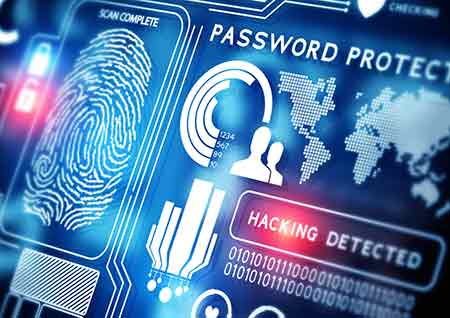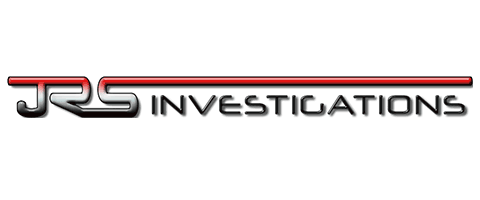(888) 737-7690
Counter Surveillance
Counter surveillance
Involves detecting and mitigating unwanted surveillance. It's a tactic used to determine if you are being surveilled and to identify who is surveilling you. This can be done through various means, including using a third party to observe the surveillants, inspecting environments for surveillance devices, and using specialized equipment to detect listening devices and hidden cameras
Counter surveillance is the practice of identifying and potentially neutralising surveillance attempts. It's not just about avoiding being seen, but also about identifying who is watching and their methods.

Free Consultations
PROTECTING YOUR INTELLECTUAL PROPERTY
CONFIDENTIAL COMMUNICATIONS GUARDED
Providing a TSCM Survey is perhaps one of the most important steps in the TSCM Inspection process. We listen to our clients and understand the scope of the project and what the client’s goals are before we begin. Our TSCM survey outlines the steps that will be taken during our TSCM Inspection and a clear path towards mitigation and resolution. Corporations and government agencies have increasingly directed resources and training into protecting their network infrastructure against cyber-attacks to prevent the many forms of security breaches and hacks. However, most often overlooked is the threat or more alarmingly, the ongoing technical eavesdropping attack from a device(s) designed to capture communications, images, video, and data.
Companies must realize with technology continuously evolving, their corporation, government agency or themselves may be under attack from simplistic eavesdropping devices to the more sophisticated. Organizations must be diligent in their efforts to guard against the threats of eavesdropping devices within their offices, boardrooms, conference rooms, c-suites, executive residences and vehicles. Other critical locations are off-site meeting rooms and hotel rooms where a company may not have complete control to provide adequate security over the space to ensure it is free from electronic eavesdropping devices. The Office of National Counterintelligence estimates US corporations are experiencing hundreds of billions of dollars in losses because of espionage attacks. Alarmingly, many organizations don’t realize the root cause of this loss, is a result of illegal technical surveillance, both generated from external adversaries to internal threats such as employees.
How Effective Are TSCM Investigations
The effectiveness of a TSCM investigation depends on a variety of factors, including the experience and expertise of the investigator, and the overall sophistication of the surveillance devices being used.
At Dewitt Detective Agency, our team has extensive experience in TSCM investigations. By utilizing our training, experience, and equipment, we are able to quickly identify, document, and neutralize and malicious surveillance equipment within the target location.

Types of Counter Surveillance:
-
Physical Counter Surveillance:This focuses on human observation and identification of potential surveillants.
-
Technical Counter Surveillance:This utilizes electronic devices to detect and neutralize surveillance technologies.
-
Evasion:This involves avoiding risky locations, being discreet, and changing your routine to make it difficult to follow.
How We Help:
- Site visit/ evaluation: One of our team of experts will do a site visit to assess your environment, identifying potential vulnerabilities and areas of concern. A quote can then be provided.
- A two-tier sweep: We meticulously scan your offices, boardrooms, and communication systems for any signs of eavesdropping devices or vulnerabilities. We have a basic sweep and a government level sweep team. To cater for all eventualities.
- Ongoing contingency sweeps: Espionage threats are ever present and so we offer ongoing support and quarterly annual sweeps to ensure your defence remains impenetrable against any new threat against your business.
- Training and awareness: Beyond technical sweeps, we teach your team with knowledge of TSCM and data security.
10 Benefits of TSCM "Bug Sweep" Services JRS Investigators
- Protecting confidential information: TSCM sweeps proactively detect and neutralize hidden cameras, microphones, and other surveillance equipment that could be used to gather sensitive data like trade secrets, financial data, and personal information.
- Maintaining privacy: Bug sweeps help ensure that private conversations, meetings, and activities remain confidential and are not being monitored by unauthorized parties, which is especially important in homes, offices, and vehicles.
- Preventing corporate espionage: Regular TSCM inspections are essential to thwart corporate espionage attempts by detecting hidden eavesdropping devices that competitors or hostile foreign entities might use to gain an unfair advantage.
- Ensuring confidentiality in business meetings: In high-stakes meetings involving strategic plans, financial data, or legal issues, TSCM sweeps guarantee the confidentiality of discussions by identifying and removing any recording or transmitting devices.
- Addressing insider threats: TSCM services can help mitigate insider threats by detecting surveillance devices installed by disgruntled employees or individuals seeking to leak sensitive information.
- Meeting legal and regulatory compliance: Many industries have strict regulations regarding information protection. TSCM helps organizations comply with these requirements and avoid legal penalties and reputational damage from security breaches.
- Maintaining trust and reputation: Demonstrating a commitment to security through regular TSCM sweeps can build and maintain client trust, safeguard a company's reputation, and protect against long-term ramifications from data leaks or unauthorized surveillance.
- Improving cybersecurity efforts: Although primarily focused on physical surveillance, TSCM can complement cybersecurity by identifying physical vulnerabilities that could lead to cyberattacks, such as hidden cameras recording passwords.
- Protecting against industrial espionage: TSCM is a critical safeguard against industrial espionage, which involves the covert collection of trade secrets, proprietary information, and other sensitive data.
- Providing peace of mind: Knowing that professional measures are in place to counteract electronic eavesdropping offers peace of mind, allowing individuals and organizations to focus on their priorities without constant worry about surveillance or privacy breaches.
For Your Free Consultation (888) 737 – 7690
